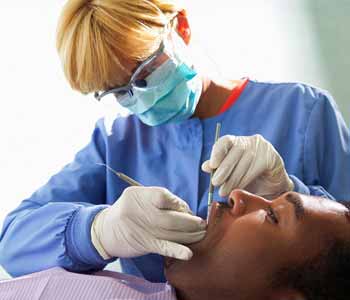Almost 45 percent of adults are missing at least one permanent tooth, while nearly 5 percent are missing all of their permanent teeth. As members of the International Academy of Oral Medicine & Toxicology and the International Academy of Biological Dentistry & Medicine, Dr. Smith will make every effort to retain as much of your natural, healthy tooth structure as possible. Routine examinations and professional cleanings go hand-in-hand with effective, diligent home care.

If a tooth is damaged by accident or as the result of other trauma, Nashua Cosmetic and Restorative Dentistry, P.L.L.C. will recommend conservative procedures such as inlays, onlays, and crowns. Even root canal therapy followed by a crown cannot save every damaged tooth. In these cases, those in the Granite State have a terrific tooth replacement option: dental implant-supported crowns and dentures.
The consultation
Any consideration of tooth replacement options starts with an examination and discussion about your goals. The many options for dental implants make them an appropriate approach for a wide range of patients.
If the dental implant is your best option, the dentists you have come to know and trust will perform every step of the process. Unlike other practices in Nashua, there is no need to refer the placement of the implant out to strangers who are specialists when the skills and tools are available in-house.
Implant placement
A natural, healthy tooth is made up of two key parts: the root and the crown. Traditional approaches to tooth replacement did not take into account the root portion of the tooth. The resulting false teeth may have looked like natural teeth, but did not feel or function that way. When not rooted to underlying structures, lab-made teeth are prone to slipping. You may even recall friends or family members struggling with ill-fitting conventional dentures.
Dental implant-supported teeth take into account the root that provides a solid foundation for crowns and dentures. The implant is shaped like a cylinder and made from biocompatible titanium. Once placed in your jaw during a minimally-invasive procedure, the implant will naturally fuse to surrounding bone. This process of osseointegration creates a stable support for the crown seen above the gumline. You avoid all the troubles associated with removable dentures, such as uncomfortable fit, slipping, and devastating bone loss over time.
Crown placement
The other part of your tooth is connected to this strong, stable foundation by way of an abutment, which helps to hold the attached crown in place.
There is no special care associated with this type of tooth replacement. Since it is designed like natural teeth, exercise good hygiene and visit for check-ups and cleanings at recommended intervals. In the weeks following your dental implant procedure, the Nashua dentists will recommend follow-up appointments to assure everything is healing as it should. There may be an adjustment period as you get used to your new tooth, and while porcelain crowns don’t decay like natural teeth you can still develop a type of inflammation that is similar to gum disease around the dental implant.
Find out more about what to expect before, during, and after the procedure by calling (855) 363-3793 for appointments.








